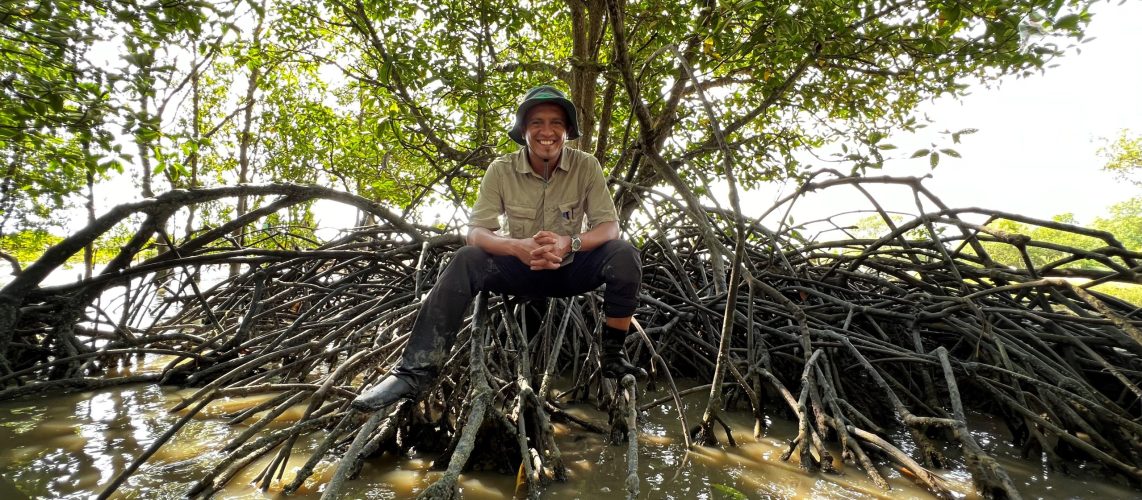This article has been published in New Straits Times on 16 June 2021.
AS the world is grappling with the Covid-19 pandemic caused by the spread of the zoonotic disease sparked by ongoing human encroachment on the natural world, the country was shocked with the recent revelation about the status of Tasik Chini.
Although not an entirely new issue, land clearing and heavy pollution would surely resonate with people throughout the country as we expect things to be better for the environment, especially during the enforcement of the total lockdown.
It was even more shocking as the world celebrated World Environment Day and World Ocean Day in June.
Both celebrations this year kickstarted two important global initiatives for 2021 to 2030 — the United Nations Decade of Ecosystem Restoration and the UN Decade of Ocean Science for Sustainable Development.
Tasik Chini is an important asset for Malaysia. Being one of the largest natural lakes in Peninsular Malaysia, it represents the rich species, diverse habitat and valuable ecosystem of the nation.
It is also an important reflection of the generational and cultural dependency of humans on nature, as Tasik Chini is also home to a large population of Orang Jakun whose lives and livelihoods totally depend on the health and ecological richness of the lake, wetlands and the surrounding terrestrial ecosystem.
A series of photographs, comparing the previous and current state of the lake and its surroundings, had circulated across social media platforms and triggered strong public demand for all deforestation and mining activities in the area to be thoroughly investigated.
In response, several parties and government agencies have come up with information and indications about the project proponents, health of the water in the lake, and the recovery of the degraded forest surrounding it.
Reports have indicated that mining permits were given prior to the gazettement of the Chini Permanent Forest Reserve in 2019, with only two licences still operating, one expiring at the end of this month and another at the end of this year.
The Pahang Forestry Department had showcased the recovery efforts in some sections of the encroached and disturbed areas within the forest reserve.
It was indeed an honourable action by the state Forestry Department and the Forestry Department of Peninsular Malaysia to carry out restoration and rehabilitation work in the damaged areas around Tasik Chini.
But for how long must we allow this reactive measure to take place in cleaning up the mess caused by irresponsible parties, which include insensitive decisions made by other authorities?
Bear in mind, although the gazettement of the area as a forest reserve was made in 2019, Tasik Chini was established as a United Nations Educational, Scientific and Cultural Organisation Man and Biosphere Reserve since 2009.
Given this important global recognition, how can these extremely destructive and damaging activities be allowed to take place around the lake from 2009 until the end of 2021?
If Malaysians cannot respect the international and multilateral environmental agreements, and if the gazettement of permanent forest reserve is our only weapon to mitigate this issue, let’s fight our way to gazette and protect all existing forested areas in the country.
A representative from the Energy and Natural Resources Ministry during the UN Development Programme’s Webinar on Ecological Fiscal Transfer in Malaysia recently reported that 55.3 per cent of the country’s land mass was covered by forest.
Of which, only 33.06 per cent of the area was gazetted as permanent forest reserve and 10.01 per cent as totally protected areas — a remarkably unrepresentative and perhaps counterintuitive portion for a mega biodiverse tropical country like Malaysia.
Awareness about the environment is obviously increasing among the public and this can be clearly seen through the uproar and concerns reflected in the media.
The concern, however, must be tallied with strong political will to ensure solid governance and protection of our natural resources, particularly at the administrative and enforcement levels.
If we continue to neglect our responsibility with dwindling respect towards nature, more and more damage will eventually affect all of us in return.
We may expect to see zoonotic diseases occurring more frequently and we will continue to observe and live in unhealthy surroundings in an unsustainable world. Let us all come to our senses with the correct mindset to establish the best way to live with nature. Let’s pave the way towards a prosperous and sustainable future for Malaysia.
